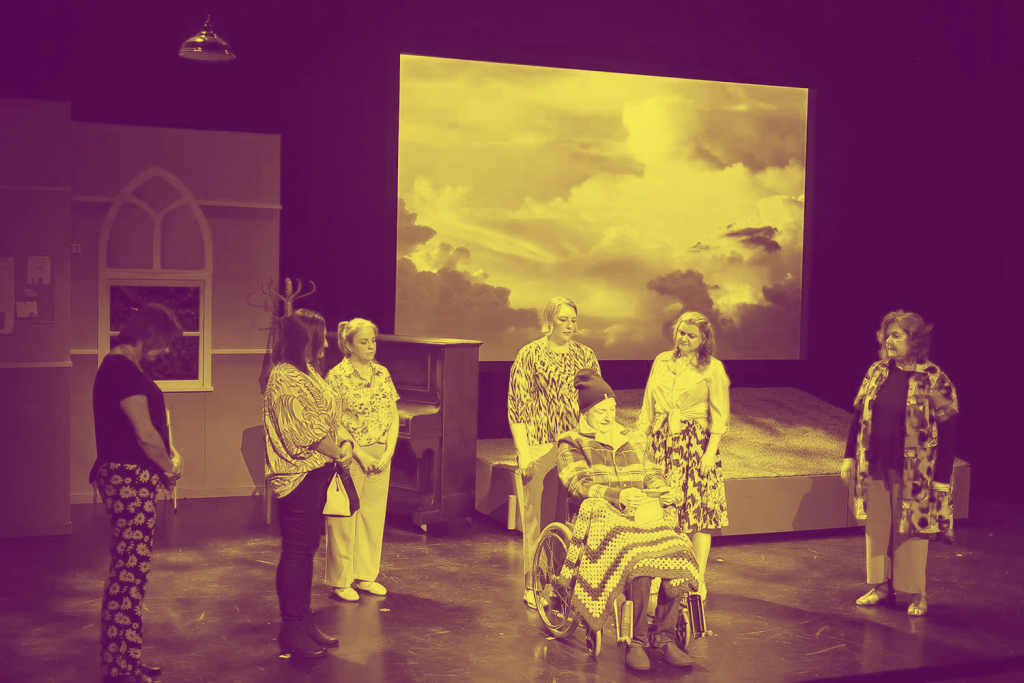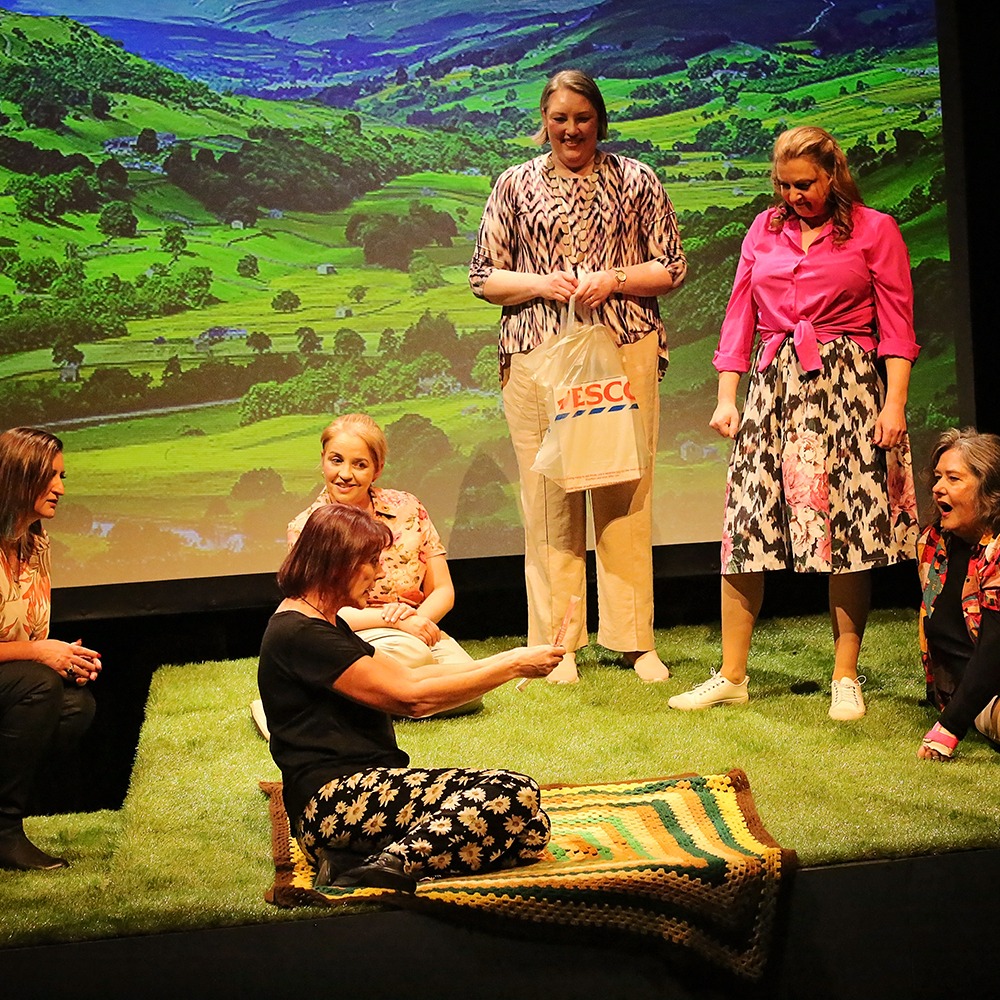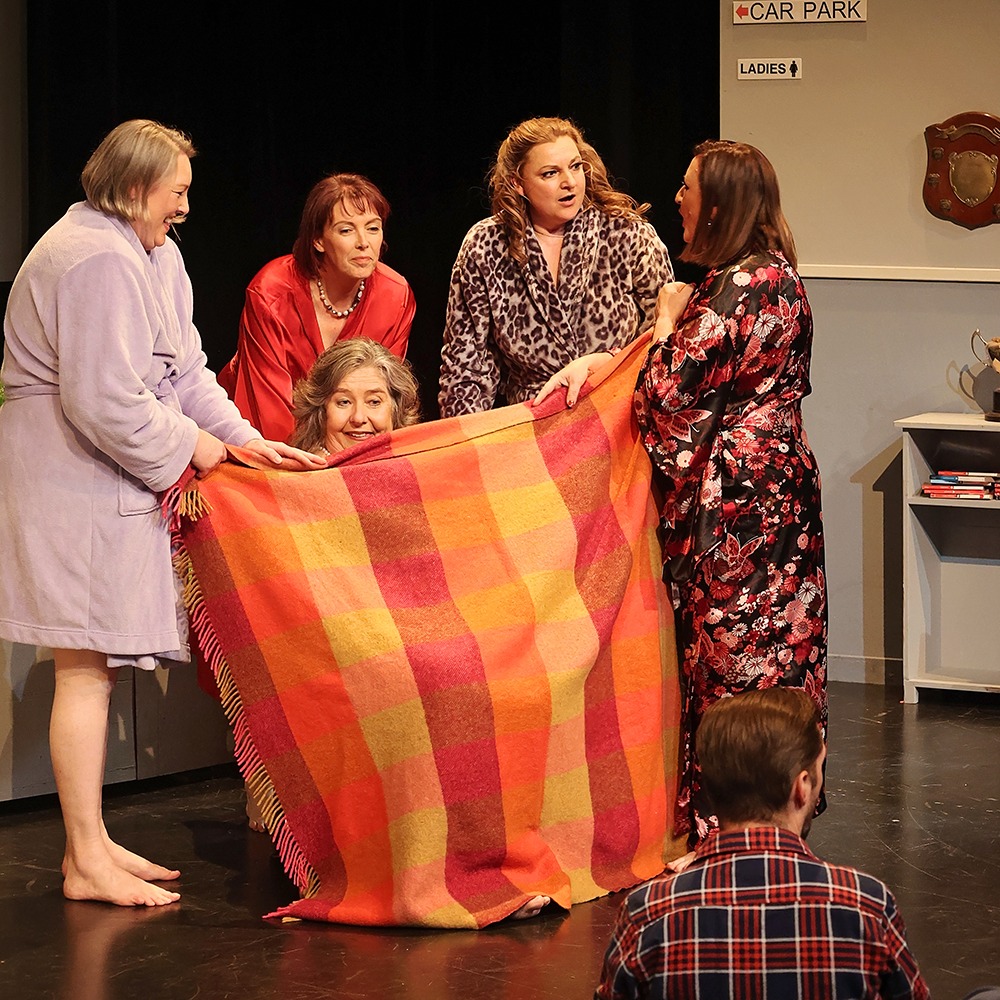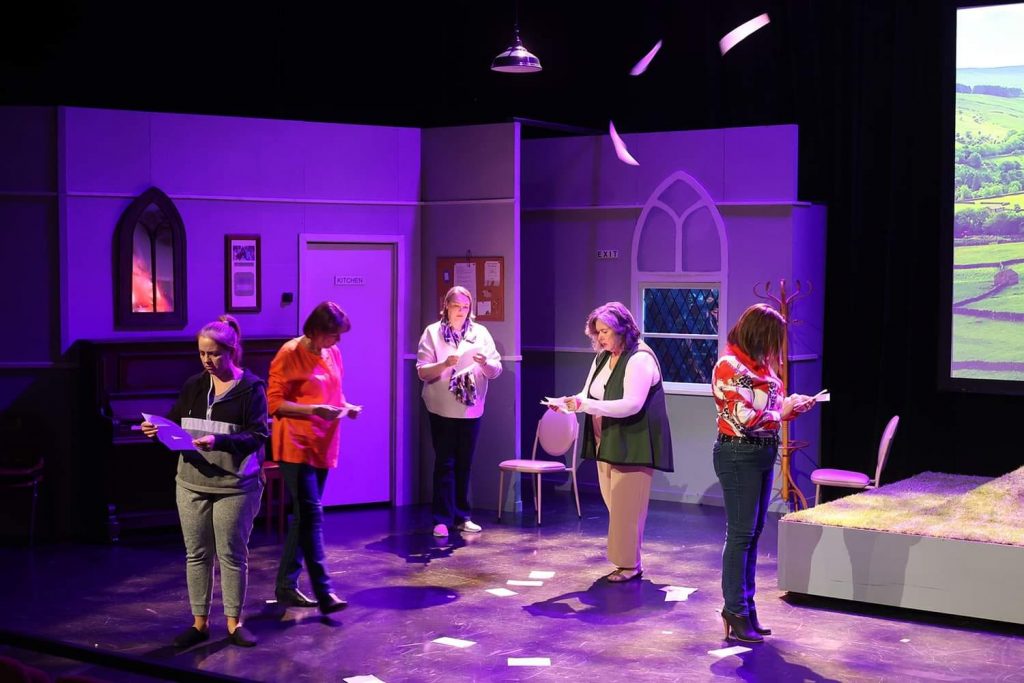
‘Calendar Girls’ // Shoebox Theatre Company
‘Calendar Girls’ was courageous.
Cancer remains the leading cause of death worldwide, the very name sending shivers down the spine of those impacted by it. One in six will suffer from cancer in their lives, meaning nearly everyone has been affected in some way. ‘Calendar Girls’ is a celebration of life, love and the courage of those that are left behind. As a fundraiser for Toowoomba Hospital Foundation, Shoebox Theatre Company’s rendition is also, in itself, a dedication to those who continue to save lives and work tirelessly to find a cure.
The story of ‘Calendar Girls’ was inspired by the real world events of the Yorkshire Women’s Institute and their fundraiser in 2000, which saw them disrobe for a good cause. Following the struggle with cancer and subsequent passing of one member’s husband, the group banded together to support Leukaemia & Lymphoma Research. It is estimated that the venture has raised in the realm of 3 million pounds over the years.
With a 2003 film, a lengthy 2008 UK Tour, a run on West End and most recently a musical adaptation, ‘Calendar Girls’ has become somewhat of a cult classic. Financially successful but with mixed critical reviews, the show remains a staple for independent and community groups hoping to raise funds and awareness for a good cause.
Director and designer, Terry Brady, opted for a traditional stagnant set. This included church-like decor, some community hall style furniture and a range of grey flats positioned at jarring angles. These created realism and depth and were finely constructed by John and Mary Quade.
The elephant in the room was loud and centre, with a large distracting trolley covered in artificial grass and a projection screen that separated the flats and split the room in two. While these elements pulled the audience’s attention, the trolley was very rarely used and the projections added very little to the overall production – the performers could have held the show on their own. It was a good attempt at incorporating modern technology into an otherwise straight play, but it didn’t quite land. These components may have been better utilised if the sunflowers were to symbolically grow over the span of the play, or if the seasonal backdrops included more animation/video as opposed to still imagery.
Costumes, designed/collated by Helen Richards, were appropriate and considered – reflecting the plot’s time and location of North England in the early 2000s, and acknowledging the range in age of the characters. It was nice to see some more youthful attire, as some productions of ‘Calendar Girls’ attempt to unnecessarily age the performers.
As director, Brady created some nice moments. In particular, letters were dropped from the ceiling and the characters were blanketed in soft blue light as they collected and read the stories of those helped by the Calendar Girls’ venture.
While the scenes themselves were fairly natural and polished, the changes were too frequent and lengthy. It would have been nice to see the shifting of furniture items worked into the scenes, rather than utilising stage hands and blackouts for minor changes that added little to the piece.
Vicki Bravery and Nerida Fraser in the lead roles of Chris and Annie were beautifully paired. They shared a stunning chemistry that carried the show and kept the audience engaged in the journey of their friendship.
Melanie Martin as Ruth was energetic and the right amount of clumsy, Mary Quade as Celia was a good balance of daring and mature, and Kylie Lee as Cora neatly captured a woman torn between her faith, her family and her friends.
The standout among the leading cast was easily Allana Noyes as Jesse. Noyes brought a sincerity and cheekiness to the role, held the most consistent English accent, and lit up the stage in each of her scenes. While the lead cast were collectively solid, Noyes was quite impressive.
A strong eight-person ensemble included Nadine Reynolds, Russell Reynolds, Timothy Ekert, Kyle Dever, Marianne Buchanan, Mitch Humphrys, Debbie Tanzer and Kristen Burrows. Nadine Reynolds had a Maggie-Smith-esque stage presence; Russell Reynolds brought tears to the eye as John; and Timothy Ekert and Kyle Dever were both exceptionally strong in the small number of scenes they had.
Shoebox Theatre Company are a staple of Toowoomba’s arts community, with a number of quality productions under their belt. Overall, ‘Calendar Girls’ packed a punch, with audible laughs and cries from audience members. Some set elements were not for everyone, but the show itself most certainly was.
‘Calendar Girls’ performed until Sunday, 12 June 2022 at the Empire Theatre, Toowoomba. For more information visit Shoebox Theatre Company’s Facebook page.









